
Jonathan Lambert was a staff writer covering biological sciences at Science News from 2019 to 2021. He earned a master’s degree from Cornell University studying how a bizarre day-long mating ritual helped accelerate speciation in a group of Hawaiian crickets. A summer at the Dallas Morning News as a AAAS Mass Media fellow sparked a pivot from biologist to science journalist. He previously wrote for Quanta Magazine, NPR, and Nature News.

Trustworthy journalism comes at a price.
Scientists and journalists share a core belief in questioning, observing and verifying to reach the truth. Science News reports on crucial research and discovery across science disciplines. We need your financial support to make it happen – every contribution makes a difference.
All Stories by Jonathan Lambert
-
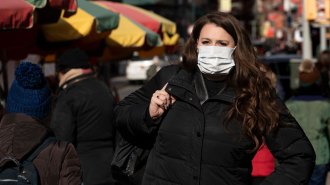 Health & Medicine
Health & MedicineScientists question White House measures to limit spread of coronavirus
The White House announced new steps to fight the coronavirus outbreak, in what’s becoming one of the biggest public health challenges in decades.
-
 Health & Medicine
Health & MedicineWHO declares coronavirus outbreak a global public health emergency
The World Health Organization says the coronavirus outbreak that began in China has been reported in 18 other countries.
-
 Health & Medicine
Health & MedicineCan the coronavirus outbreak be contained?
More than 50 million people are quarantined in China, but whether the strategy will stem the epidemic’s spread is unclear.
-
 Health & Medicine
Health & MedicineWHO says China’s coronavirus outbreak isn’t a global emergency yet
While the WHO says the coronavirus outbreak isn’t a global emergency, China has locked down several large cities to stop the virus from spreading.
-
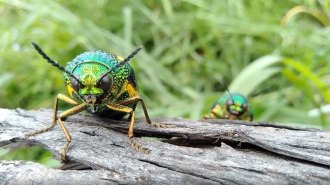 Life
LifeSparkly exoskeletons may help camouflage beetles from predators
Iridescence, normally thought to help insects stand out, can also camouflage beetles from predators, according to new experimental evidence.
-
 Health & Medicine
Health & MedicineThe first U.S. case of a new coronavirus has been confirmed
After confirmation that a new coronavirus is transmissible between humans, U.S. health officials report a first case in Seattle.
-
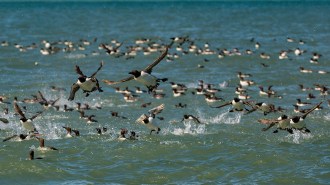 Life
LifeThe ‘Blob,’ a massive marine heat wave, led to an unprecedented seabird die-off
Scientists have linked thousands of dead common murres in 2015–2016 to food web changes caused by a long-lasting marine heat wave nicknamed the Blob.
-
 Health & Medicine
Health & MedicineWhat we know — and don’t know — about a new virus causing pneumonia in China
A newfound coronavirus is behind a mysterious outbreak of pneumonia in central China. Experts urge vigilance but say there’s no cause for panic.
-
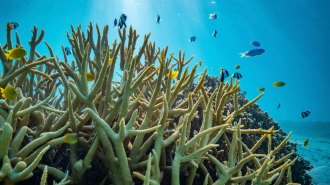 Life
LifeOcean acidification may not make fish act weird after all
A new study casts doubt on the results of early work into the effects of ocean acidification on coral reef fish behavior.
-
 Earth
EarthClimate change is bringing earlier springs, which may trigger drier summers
An earlier than normal start to spring foliage is associated with drier soils come summer across much, but not all, of the Northern Hemisphere.
-
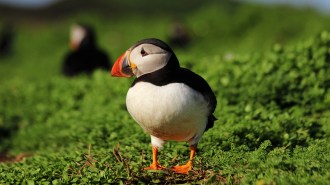 Life
LifeStick-toting puffins offer the first evidence of tool use in seabirds
Puffins join the ranks of tool-using birds after researchers document two birds using sticks to groom, a first for seabirds.
-
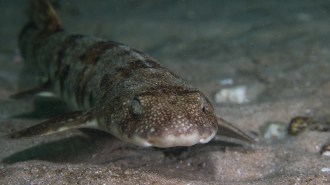 Life
LifeOcean acidification could degrade sharks’ tough skin
Nine weeks of exposure to acidic seawater corroded the toothlike denticles that make up a puffadder shyshark’s skin, a small experiment found.